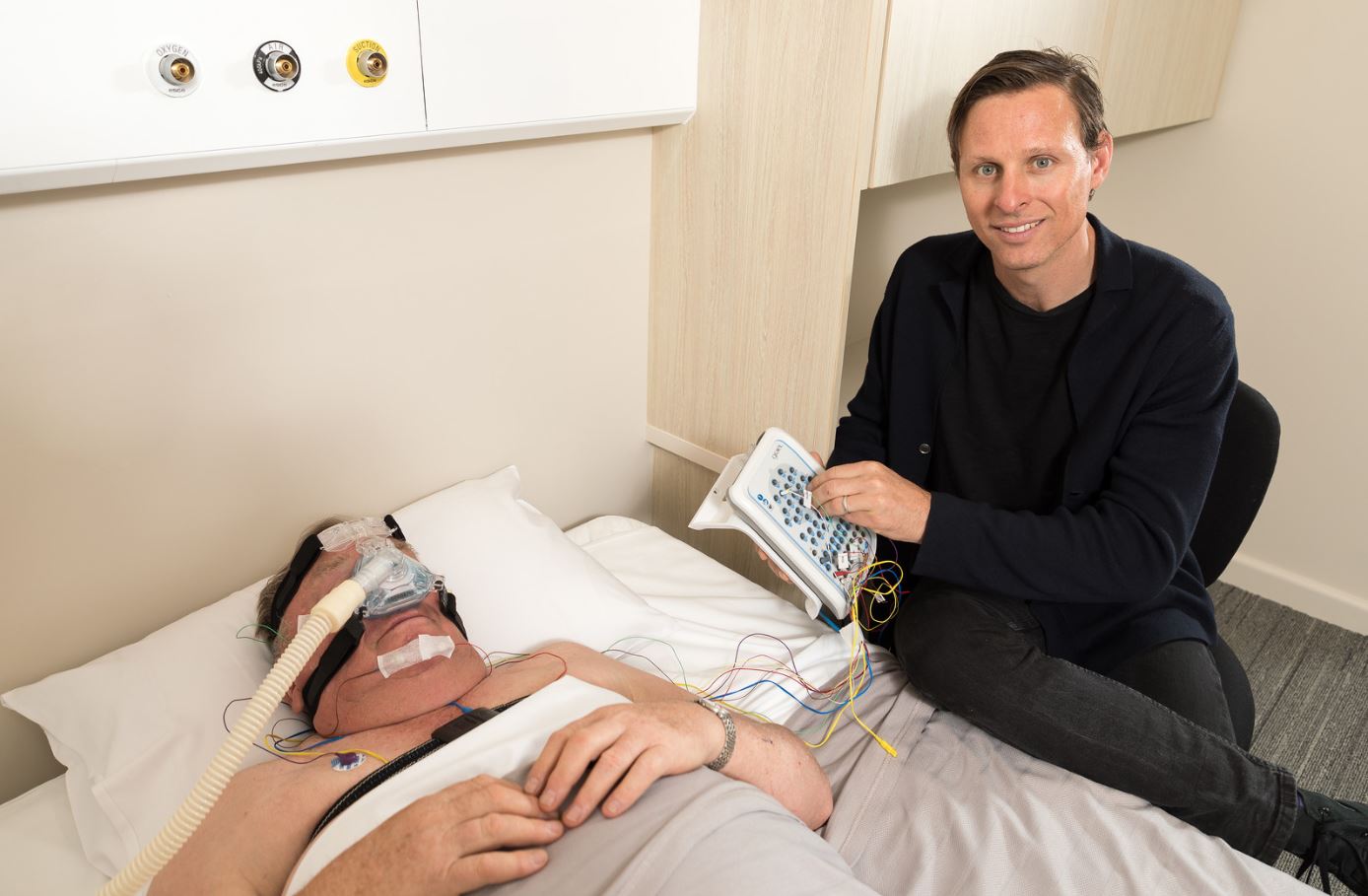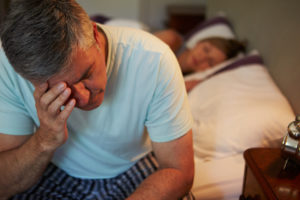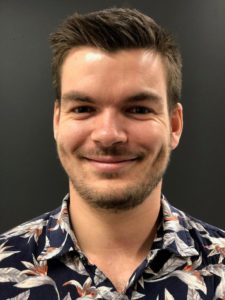
A new approach to measure the common sleep related breathing disorder, obstructive sleep apnea (OSA), estimates that 20% of adults or approximately 1 billion people globally have moderate to severe sleep apnea which can lead to a wide range of health issues as well as driving and workplace hazards caused by daytime drowsiness.

The new method of monitoring over multiple nights in the home, trialled by an international team led by Flinders University, found severity varies widely in up to half of the participants over the six-month study period, suggesting that traditional assessment of OSA that relies on only one night of testing may lead to misdiagnosis in severity.
The findings, to be published in the American Journal of Respiratory and Critical Care Medicine, found that breathing disorders underpinning OSA vary widely from night to night and that multiple-night monitoring of breathing patterns increases “diagnostic confidence”.
The new research used the results from nightly sleep monitoring in the home of more than 65,000 people worldwide for an average of six months, using a new under-mattress sleep monitoring device, the Withings Sleep Analyzer, with approval from participants.
“From the 11.6 million nights of data collected, we found that 20% of participants in the study had signs of moderate to severe sleep apnea (characterised by more than 15 breathing disturbances per hour),” says Flinders University researcher Dr Bastien Lechat.

“The large variations in OSA from night to night in many of the people we studied shows that diagnosis of OSA based on only one night of monitoring may be problematic in many cases.”
Nightly variation in sleep disruption, particularly in mild and moderate cases, may even occur in severe cases of OSA – all of which can lead to adverse health and safety risks, including heart disease, depression, traffic accidents, and even mortality.
“It is exciting to think that a simple, non-invasive monitor that sits under your mattress at home has the potential for more accurate classification of this debilitating sleep condition,” says Professor Danny Eckert, director of the Adelaide Institute for Sleep Health (FHMRI Sleep Health) at Flinders University.
The new research highlights that single-night assessments usually used to diagnose OSA could be enhanced when combined with non-invasive tests at home over several nights to produce more accurate diagnosis and inform optimal treatment options.
Prior to recent advances in non-invasive home sleep monitoring technology, it was not feasible to examine night-to-night variation in OSA severity and its potential impact on diagnostic classification and prevalence estimates over extended periods in the home setting at scale, the new study found.
Simple, non-invasive multi-night assessment for OSA may be a feasible, cost-effective approach to increase diagnostic success and access, and to help complement routine clinical practice, researchers say.
‘Multi-night prevalence, variability, and diagnostic misclassification of obstructive sleep apnea’ (2021) by Flinders researchers Bastien Lechat, Ganesh Neik, Amy Reynolds, Atqiya Aishah (FHMRI Sleep Health, UNSW NeuRA), Hannah Scott, Kelly Loffler, Andrew Vakulin, Pierre Escourrou (Centre Interdisciplinaire du Sommeil), Doug R McEvoy, Robert Adams, Peter Catcheside and Danny Eckert has been published in the American Journal of Respiratory and Critical Care Medicine DOI: 10.1164/rccm.202107-1761OC.
Also ‘New and Emerging Approaches to Better Define Sleep Disruption and Its Consequences’ (2021) by B Lechat, H Scott, G Naik, K Hansen, DP Nguyen, A Vakulin, P Catcheside and DJ Eckert in Frontiers in Neuroscience DOI: 10.3389/fnins.2021.751730
Declarations: Dr Pierre Escourrou is a consultant for Withings. Withings provided sleep analyzers for the validation trial but had no role in the study design, study analysis, data interpretation, or preparation of the manuscript.
Note: No other companies were involved in the submitted work. Outside this study, Prof Danny Eckert serves as a consultant for Bayer and Apnimed, while Profs Robert Adams and Andrew Vakulin receive research funding and equipment from ResMed and Philips Respironics, and Peter Catcheside has separate funding from Philips Respironics. None of the other authors have any relevant conflicts to declare.

